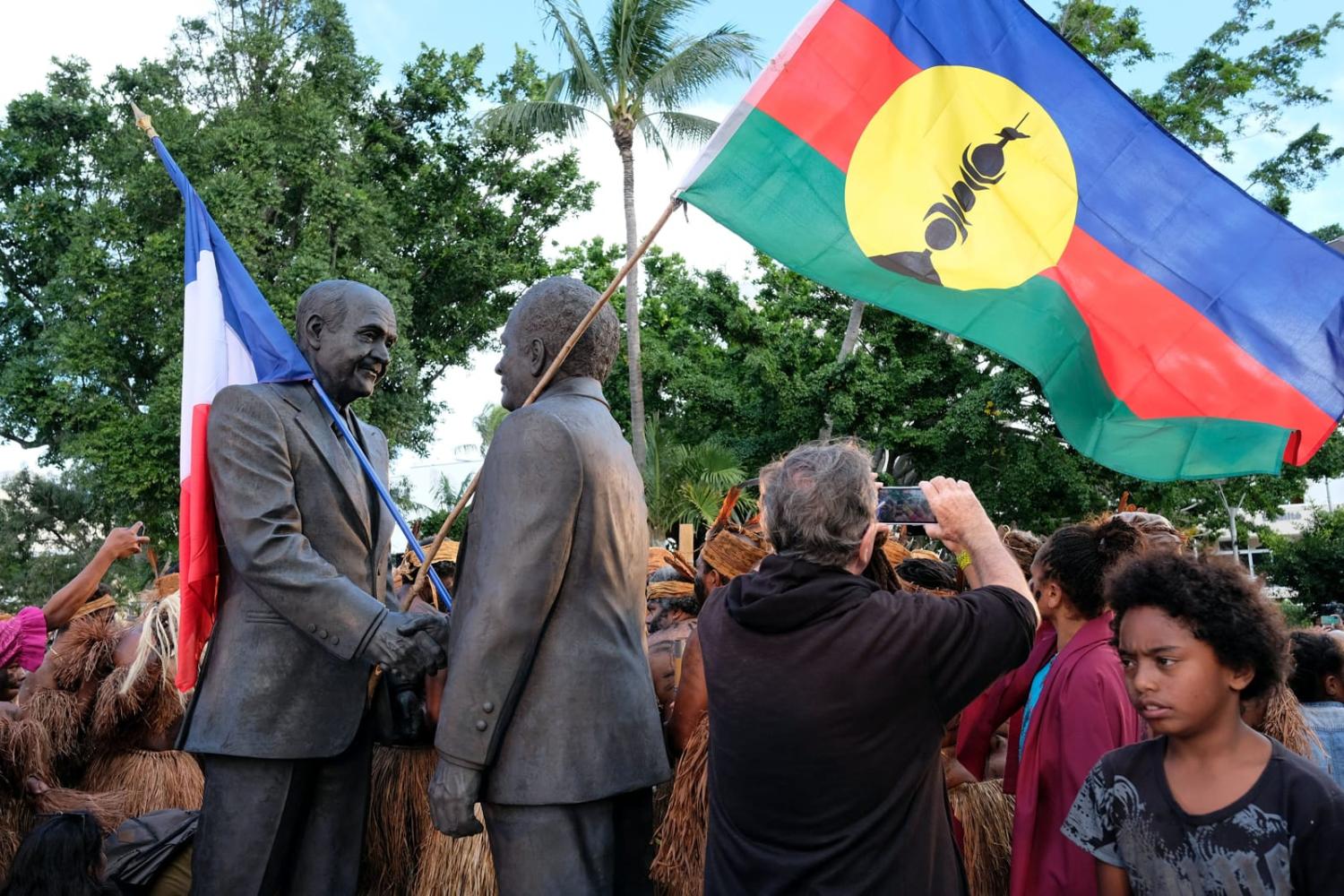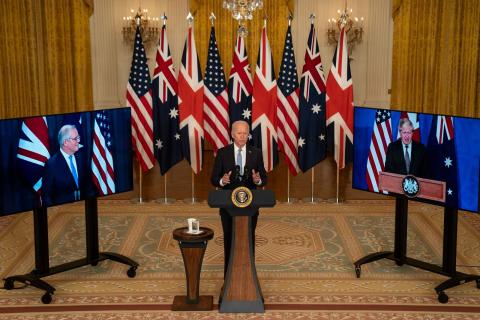New Caledonian parties are meeting in Paris this week for talks that France hopes might break a deadlock over the territory’s future. After a disputed independence referendum in 2021, France is now increasing pressure on independence parties to institutionalise New Caledonia within France.
France organised the third and supposedly final independence referendum held in December 2021 under the 1998 Nouméa Accord in an arguably partial “stay with France” manner. That referendum was fatally undermined by a pro-independence Kanak boycott. France had dismissed Kanak requests to defer the vote (which it could legally have done) owing to the impeding effect of traditional mourning rites when the community suffered high mortalities after the Delta strain of the Covid-19 virus hit the territory from September 2021.
The first two referendums had delivered a narrow pro-France outcome, with a large and increasing Kanak-based pro-independence minority – 43.3% favouring independence in 2018, and 46.7% in 2020. By contrast, the boycotted December 2021 vote resulted in just 3.5% favouring independence, with a low turnout (44% compared to 81% and 86% in 2018 and 2020).
France initially acknowledged the third pro-France vote had involved a massive abstention. But by mid-2022, French President Emmanuel Macron was simply claiming three majority votes for staying French. Loyalist parties were triumphal from the day after the 2021 vote, seeking early talks to ensconce the territory more firmly within France. Independence parties rejected the result outright, called for another fairer vote, declined to participate in trilateral discussions with both loyalists and France, and took their issues to the United Nations.
Pacific Islands Forum and UN observers expressed cautious concern. The UN General Assembly’s annual resolution on New Caledonia this year noted the “challenges” raised by the third referendum and urged dialogue for peaceful progress towards an act of self-determination.
Macron has since tightened the screws. France proceeded with one-sided talks with loyalists alone, after the independence coalition maintained its opposition to trilateral talks. Macron further raised pro-independence ire by appointing loyalist leader Sonia Backès as a national Minister, the first New Caledonian nomination ever, giving her the portfolio of Citizenship, a controversial concept for Kanaks.
Avenir institutionnel de la #NouvelleCaledonie: le FLNKS reçu par La France insoumise https://t.co/ZMjmLK0j4D pic.twitter.com/3nwXJosLlO
— NC La 1ère (@ncla1ere) April 10, 2023
French Interior Minister Gérald Darmanin, while saying another self-determination vote was not inconsistent with the French constitution, has devised a timetable for talks, pressuring parties to agree at least on a mini package of issues before the May 2024 provincial assembly elections. But those assemblies were created by agreements that have now expired, and which stipulated restricted voter eligibility for assembly elections, confined to those with ten years residency to 1998.
Retaining restricted electorates for local elections and referendums is a fundamental citizenship issue for Kanaks, a pre-condition for signing the Accord itself after decades of French policy encouraging French immigration specifically to outnumber them. Loyalist parties favour lifting the restricted electorates.
Darmanin threatened that if parties could not agree on a restricted electorate for the 2024 provincial elections, then France would allow all residents to vote. Official sources privately say Macron’s government submitted the question of removing restricted electorates to France’s Conseil d’État, but withdrew it when some jurists questioned its legality.
France is also applying economic pressure. Chairing a meeting over the territory’s valuable nickel resource, Darmanin said massive French government support for the three large nickel plants could not continue indefinitely, and required a unified approach by local parties.
This month, after the Kanak-led local government passed the 2023 budget without specifying French government aid, and on the eve of the Paris talks, the senior French representative in New Caledonia, who rarely makes public statements, publicly outlined the full extent of French government largesse to the territory (about AU$2.7 billion per annum, 20% of GDP, including AU$700 million for education alone). The message of cooperation in return for economic support was clear.
Coincidentally, the only territory-wide newspaper, French-owned Les Nouvelles Caledoniennes, closed on 16 March after 52 years, which the pro-independence President of the Congress Roch Wamytan described as undermining democracy.
France might well apply pressure, but Kanak leaders say time is on their side. They represent at least 42% of the population, whereas Europeans, 29%, are leaving. Announcing their participation in this week’s talks (but only in bilateral meetings with France), they said their objective remained full sovereignty, that they would not be negotiating, and that any modification to the restricted electorate would “undermine social peace”. One leader has referred to a new treaty to transition to a fully sovereign state.
Macron’s government is under fire from the hard-right nationally, suggesting little room for compromise over a future New Caledonia within France. Kanak leaders are signalling they are not inclined to comply easily.
For Australia’s part, the Albanese government has made no comment on New Caledonia. With Foreign Minister Penny Wong putting first nations perspectives at the heart of Australian foreign policy, and regional leaders supporting the Kanak cause, Australia will be hard pressed to remain silent if France should demonstrate again that it is not listening to indigenous New Caledonians.


